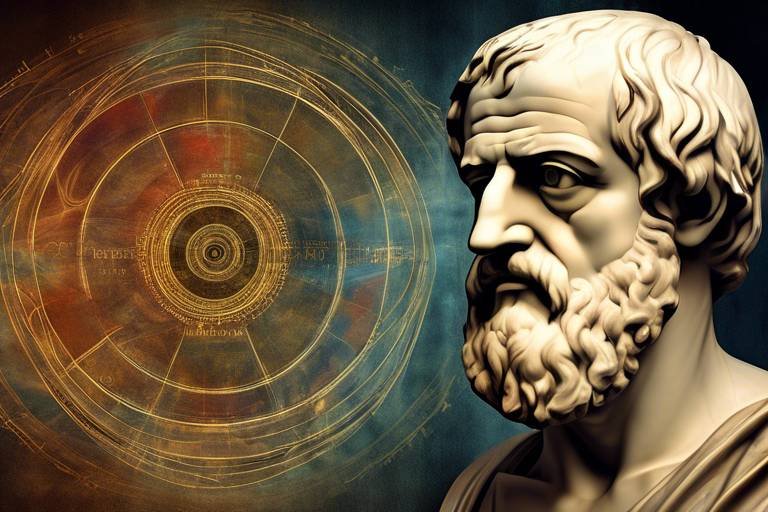A Closer Look at the Philosophy of Epistemology
Have you ever wondered what it really means to "know" something? Is knowledge merely a collection of facts, or is it something deeper? This article delves into the intricate study of knowledge, exploring its nature, sources, and limits. We will examine key concepts, historical perspectives, and contemporary debates within the realm of epistemology. Epistemology, derived from the Greek words for "knowledge" and "study," is essentially the study of knowledge itself. It probes into questions like: What is knowledge? How do we acquire it? And what justifies our beliefs?
At its core, epistemology challenges us to think critically about the information we accept as true. It invites us to dissect our beliefs and understand the frameworks that shape our understanding of reality. Imagine embarking on a treasure hunt, but instead of searching for gold, you're hunting for truth. Each clue you uncover leads to more questions, making the journey as valuable as the destination. This is the essence of epistemology—an ongoing quest for understanding that never truly concludes.
Throughout history, philosophers have grappled with these questions, offering various theories and perspectives. From ancient thinkers like Plato, who proposed that knowledge is justified true belief, to modern philosophers who challenge this definition, epistemology is a lively field filled with debate and discussion. As we navigate through this article, we'll explore the fundamental aspects of knowledge, the sources from which it derives, and the philosophical battles that have shaped our understanding of what it means to know.
In the sections that follow, we will dissect the nature of knowledge, delve into the sources from which it arises, and confront the challenges that threaten our understanding of truth. Whether you're a seasoned philosopher or just curious about the nature of knowledge, this exploration promises to be enlightening. So, buckle up as we embark on this intellectual journey through the fascinating world of epistemology!
Understanding what constitutes knowledge is fundamental in epistemology. This section explores definitions, the distinction between belief and knowledge, and the criteria that must be met for a belief to be considered knowledge. The classic definition of knowledge, often attributed to Plato, states that knowledge is "justified true belief." But what does this mean in practice? To break it down, let's consider the three essential components:
- Belief: For something to be considered knowledge, one must believe it to be true.
- Truth: The belief must correspond to reality; it must be true.
- Justification: There must be sufficient evidence or reasoning to support the belief.
This triad forms the backbone of many epistemological discussions. However, as we will see later, challenges like skepticism and relativism complicate this seemingly straightforward definition.
Epistemology investigates various sources from which knowledge can be derived. This section discusses perception, reason, intuition, and testimony, analyzing their reliability and roles in the acquisition of knowledge. Each source offers a unique lens through which we can view the world, but they also come with their own sets of challenges.
The debate between empiricism and rationalism is central to epistemology. This part compares both viewpoints, examining how they interpret the sources and justification of knowledge. While empiricism emphasizes knowledge gained through sensory experience, rationalism asserts that reason is the primary source of knowledge. Understanding these two perspectives is crucial for anyone looking to grasp the complexities of epistemological thought.
Empiricism emphasizes knowledge gained through sensory experience. Here, we discuss its principles and notable proponents, such as John Locke and David Hume, who shaped this perspective. According to empiricists, our senses are the gateway to understanding the world, and knowledge is built upon our experiences. Imagine a child learning about the world by touching, tasting, and seeing—this is the essence of empiricism.
On the flip side, rationalism asserts that reason is the primary source of knowledge. This section highlights key figures like René Descartes and Immanuel Kant, detailing their contributions to rationalist thought. Rationalists argue that there are inherent truths that can be understood through reason alone, independent of sensory experience. Think of it as having a map before you even set out on your journey—it provides a framework for understanding before you gather evidence.
Justification is crucial in determining the validity of knowledge claims. This section explores different theories of justification, including foundationalism and coherentism, and their implications for epistemology. Foundationalism suggests that certain beliefs are self-justified, while coherentism argues that beliefs are justified by their coherence with other beliefs. This ongoing debate raises important questions about what it means to truly "know" something.
Epistemology faces numerous challenges, including skepticism and relativism. This section addresses these challenges, exploring their implications for our understanding of knowledge and truth. Skepticism questions the possibility of certain knowledge, while relativism posits that knowledge is context-dependent. Both perspectives invite us to reevaluate our assumptions and confront the limitations of our understanding.
Skepticism questions the possibility of certain knowledge. Here, we examine various forms of skepticism and their critiques, considering how they impact epistemological theories. From Descartes' methodical doubt to contemporary skepticism about scientific knowledge, this challenge forces us to confront the foundations of our beliefs.
Relativism posits that knowledge is context-dependent. This part discusses the implications of relativism for truth and knowledge claims, analyzing its strengths and weaknesses in contemporary discourse. While relativism encourages open-mindedness and understanding of different perspectives, it also raises concerns about the validity of knowledge claims across cultures and contexts.
- What is epistemology? Epistemology is the branch of philosophy that studies knowledge, its nature, sources, and limits.
- What are the main sources of knowledge? The main sources include perception, reason, intuition, and testimony.
- What is the difference between empiricism and rationalism? Empiricism emphasizes knowledge through sensory experience, while rationalism emphasizes reason as the primary source of knowledge.
- What are some challenges to knowledge? Major challenges include skepticism and relativism, which question the certainty and context of knowledge claims.

The Nature of Knowledge
Understanding what constitutes knowledge is fundamental in epistemology. At its core, knowledge can be defined as a justified true belief, but this seemingly simple definition opens up a Pandora's box of questions. What exactly is belief? How do we determine if something is true? And what does it mean to justify a belief? These questions are not just academic; they touch on our everyday lives and how we interact with the world around us.
To delve deeper, let’s break down the components of knowledge:
- Belief: For something to be classified as knowledge, one must first believe it. But belief alone isn't enough; it must be more than a fleeting thought. It’s a conviction that something is the case.
- Truth: The belief must also correspond to reality. This is where things start to get tricky. How do we determine what is true? Is it based on objective facts, or can truth be subjective?
- Justification: Finally, a belief must be justified. This means that there must be sound reasoning or evidence supporting the belief. It’s not enough to simply think something is true; we need to have reasons that stand up to scrutiny.
Now, let's consider the distinction between belief and knowledge. Imagine you think your friend is at the coffee shop because you saw their car parked outside. You believe they are there, and if they are indeed inside sipping a latte, your belief aligns with the truth. However, if you didn’t see their car but merely assumed they were there, your belief lacks justification, and thus, it cannot be classified as knowledge.
Moreover, the criteria for knowledge can vary across different philosophical traditions. For instance, some philosophers argue that knowledge must be infallible, while others contend that fallibility doesn’t disqualify a belief from being knowledge. This debate leads us to consider the implications of what it means to "know" something in a world filled with uncertainties and ambiguities.
In summary, the nature of knowledge is a complex interplay of belief, truth, and justification. It challenges us to think critically about our convictions and the foundations upon which they stand. As we navigate through life, understanding these elements can empower us to make more informed decisions and foster a deeper appreciation of the knowledge we acquire.

Sources of Knowledge
When we embark on the journey to understand knowledge, we quickly realize that its sources are as diverse as they are intriguing. Knowledge doesn’t spring from a single fountain; rather, it flows from various streams, each with its own characteristics and reliability. Let’s dive into the primary sources that epistemologists have identified, which include perception, reason, intuition, and testimony. Each of these sources plays a crucial role in shaping our understanding of the world around us.
First up is perception. This is the gateway through which we interact with our environment. It’s like being handed a pair of glasses that allow us to see the world more clearly. Through our senses—sight, hearing, touch, taste, and smell—we gather information that forms the basis of our knowledge. However, perception is not infallible; it can be deceptive. Just think about optical illusions or the way our minds can play tricks on us. This highlights the importance of critically evaluating the information we gather through our senses.
Next, we have reason. This source is often viewed as the brain’s superpower, allowing us to analyze, deduce, and infer conclusions based on premises. It’s akin to solving a puzzle where each piece represents a piece of information that, when put together, reveals a bigger picture. The great philosophers, such as Aristotle and Descartes, emphasized the role of reason in acquiring knowledge. Yet, just like perception, reasoning has its limitations. Logical fallacies can lead us astray, reminding us that even our most rational thoughts need scrutiny.
Intuition is another fascinating source of knowledge. It’s that gut feeling we sometimes experience, like a whisper from our subconscious guiding us toward a decision. While intuition can provide insights that are difficult to articulate, it’s also subjective and can be influenced by emotions and biases. This makes it a double-edged sword in the search for knowledge. We often find ourselves caught in a tug-of-war between what we feel and what we know.
Lastly, we arrive at testimony. This source refers to the knowledge we gain from others—friends, family, experts, or even the media. It’s like standing on the shoulders of giants, allowing us to access information that we might not have the time or resources to discover on our own. However, the reliability of testimony can vary significantly. We must consider the credibility of the source and the context in which the information is presented. In an age of misinformation, being a discerning consumer of knowledge is more important than ever.
To summarize, here’s a quick look at the sources of knowledge:
| Source | Description | Strengths | Weaknesses |
|---|---|---|---|
| Perception | Knowledge gained through sensory experience. | Direct interaction with the environment. | Can be deceptive; prone to illusions. |
| Reason | Knowledge derived from logical deduction and inference. | Allows for critical thinking and problem-solving. | Susceptible to logical fallacies. |
| Intuition | Knowledge based on gut feelings or instinctive insights. | Can provide quick insights; often accurate. | Highly subjective; influenced by emotions. |
| Testimony | Knowledge acquired from others' reports and claims. | Access to a wealth of information. | Varies in reliability; potential for misinformation. |
In conclusion, the sources of knowledge are multifaceted and complex, each contributing to our understanding in unique ways. As we navigate through life, it’s essential to be aware of where our knowledge comes from and to approach each source with a critical mind. In the grand tapestry of epistemology, these sources weave together to create the rich fabric of our understanding of truth and reality.

Empiricism vs. Rationalism
When it comes to understanding the sources of knowledge, the debate between empiricism and rationalism stands out as one of the most significant discussions in epistemology. At its core, this debate revolves around two fundamental questions: How do we know what we know? and What constitutes valid knowledge? Empiricism argues that knowledge is primarily derived from sensory experience, while rationalism posits that reason and intellectual deduction are the primary sources of knowledge. These contrasting viewpoints not only shape how we perceive the world but also influence various fields, from science to ethics.
To illustrate the differences between these two epistemological approaches, let's consider the following table:
| Aspect | Empiricism | Rationalism |
|---|---|---|
| Source of Knowledge | Sensory experience | Reason and logic |
| Key Figures | John Locke, David Hume | René Descartes, Immanuel Kant |
| Method of Justification | Observation and experimentation | Deductions and axioms |
| View of Reality | Knowledge is contingent on experience | Knowledge is innate or can be deduced |
Empiricists like John Locke believed that the mind is a tabula rasa or blank slate at birth, and all knowledge comes from experience. This perspective emphasizes the importance of observation and experimentation. For instance, when a scientist conducts an experiment, they rely on empirical data to draw conclusions about the natural world. On the other hand, David Hume took this a step further by questioning the very nature of causality, suggesting that our understanding of cause and effect is rooted in habit and experience rather than logical deduction.
In stark contrast, rationalists argue that there are certain truths that can be known independently of experience. They believe that reason is the ultimate path to knowledge. For example, René Descartes, famously declared, "Cogito, ergo sum" (I think, therefore I am), emphasizing the certainty of one's existence through the act of thinking. Immanuel Kant also contributed significantly to this discourse by proposing that our understanding of the world is shaped by both sensory experiences and innate concepts that structure our perceptions.
The implications of these two views extend beyond philosophical discussions; they influence how we approach learning and problem-solving in everyday life. For instance, in education, an empiricist approach might prioritize hands-on experiments and observational learning, while a rationalist approach might focus on theoretical frameworks and logical reasoning exercises.
As we navigate through various disciplines—be it science, mathematics, or the arts—understanding whether we lean more towards empiricism or rationalism can profoundly affect our worldview. Are we more inclined to trust what we can see and touch, or do we place greater value on abstract reasoning and innate understanding? This ongoing dialogue between empiricism and rationalism not only enriches our understanding of knowledge but also challenges us to consider the very foundations upon which we build our beliefs.
- What is empiricism? Empiricism is the philosophical view that knowledge comes primarily from sensory experience.
- What is rationalism? Rationalism is the belief that reason and logical deduction are the primary sources of knowledge.
- Who are the key figures in empiricism? Notable empiricists include John Locke and David Hume.
- Who are the key figures in rationalism? Influential rationalists include René Descartes and Immanuel Kant.
- How do these philosophies impact our understanding of knowledge? They shape our approach to learning, problem-solving, and how we validate our beliefs.

Empiricism Explained
Empiricism is a philosophical stance that emphasizes the role of sensory experience in the acquisition of knowledge. At its core, empiricism argues that all knowledge is ultimately rooted in what we can observe and experience through our senses. Imagine trying to understand the world around you without ever stepping outside; it would be like reading a book without ever seeing the pictures. This perspective holds that our senses provide the foundational data upon which we build our understanding of reality.
Historically, key figures such as John Locke and David Hume have played pivotal roles in shaping empiricist thought. Locke, for instance, famously described the mind at birth as a tabula rasa or blank slate, suggesting that all knowledge comes from experience. He believed that our understanding of the world is constructed through the accumulation of sensory information, which is then processed by our minds. Hume took this a step further, arguing that our beliefs about the world are not just derived from sensory experiences, but also from the habits and patterns we observe over time.
Empiricism can be broken down into several key principles:
- Observation: Knowledge begins with what we can see, hear, touch, taste, and smell.
- Induction: Generalizations are made based on repeated observations. For example, if you see the sun rise every morning, you might conclude that it will rise again tomorrow.
- Testing: Empirical knowledge must be tested against experience. If a claim cannot be substantiated through observation, it is viewed with skepticism.
One of the most compelling aspects of empiricism is its focus on scientific methodology. Empirical research relies on experimentation and observation, making it a cornerstone of the scientific method. This approach has led to significant advancements in various fields, from medicine to technology. However, it also raises important questions about the limits of our sensory experiences. For instance, can we trust our senses to provide an accurate depiction of reality? This is where the dialogue between empiricism and other epistemological theories, such as rationalism, becomes particularly intriguing.
In conclusion, empiricism invites us to consider the world through a lens of evidence and experience. It challenges us to rely on what we can perceive directly, while also acknowledging the limitations of our senses. As we navigate through life, we are constantly gathering data, refining our beliefs, and adjusting our understanding of the universe. Empiricism reminds us that knowledge is not static; it evolves as we encounter new experiences and insights.
- What is empiricism? Empiricism is a philosophical theory that emphasizes knowledge acquired through sensory experience.
- Who are some key figures in empiricism? Notable proponents include John Locke and David Hume.
- How does empiricism differ from rationalism? While empiricism focuses on sensory experience, rationalism emphasizes reason as the primary source of knowledge.
- What role does observation play in empiricism? Observation is fundamental in empiricism, as it is the starting point for knowledge acquisition.

Rationalism Explained
Rationalism is a philosophical doctrine that emphasizes the role of reason as the primary source of knowledge. Unlike empiricism, which relies heavily on sensory experience, rationalists argue that certain truths can be known independently of experience. This perspective suggests that our innate reasoning capabilities allow us to uncover fundamental truths about the world, much like a detective piecing together clues to solve a mystery.
One of the most compelling aspects of rationalism is its assertion that some concepts and knowledge are inherent to human beings. For instance, think about mathematical truths such as 2 + 2 4. We don't need to physically count objects to understand this; it is a truth that can be grasped through reason alone. This idea leads to the belief that there exists a realm of knowledge that is accessible through intellectual insight rather than empirical observation.
Key figures in the rationalist tradition include René Descartes and Immanuel Kant. Descartes famously stated, "Cogito, ergo sum," or "I think, therefore I am," highlighting the importance of self-awareness and the certainty of one's own existence as a starting point for knowledge. He argued that the mind has the ability to understand truths that are not reliant on the physical world. Kant, on the other hand, proposed that while our understanding begins with experience, it is shaped by the innate structures of the mind. This means that our reasoning capabilities actively contribute to how we perceive and interpret the world around us.
To better understand rationalism, let’s take a look at some of its fundamental principles:
- Innate Ideas: Rationalists believe that some ideas are inherent to the human mind and do not require sensory experience to be known.
- Deductive Reasoning: This method involves starting with general principles and deriving specific conclusions, emphasizing the power of logical deduction.
- Universal Truths: Rationalists argue that certain truths are universally applicable and can be discovered through reason, regardless of cultural or personal experiences.
While rationalism has its strengths, it also faces criticism, particularly from empiricists who argue that knowledge must be grounded in sensory experience. However, rationalists counter that without the structure provided by reason, our sensory experiences could lead us astray. The tension between these two viewpoints creates a rich dialogue in epistemology, pushing us to consider the limits and possibilities of human understanding.
In conclusion, rationalism invites us to explore the depths of our reasoning abilities and challenges us to consider how much of what we know is a product of our innate capacities. It emphasizes the idea that while we might learn from the world around us, the greatest truths often lie within the realm of reason itself, waiting to be uncovered by those brave enough to seek them.
- What is rationalism? Rationalism is a philosophical belief that reason is the primary source of knowledge, independent of sensory experience.
- Who are some key figures in rationalism? Notable rationalists include René Descartes and Immanuel Kant, both of whom made significant contributions to the understanding of knowledge and reason.
- How does rationalism differ from empiricism? While rationalism emphasizes reason as the source of knowledge, empiricism relies on sensory experience to acquire knowledge.

The Justification of Knowledge
Justification is a cornerstone of epistemology, serving as the bridge between belief and knowledge. To claim that one knows something, it is not enough to simply believe it; there must be a solid foundation that supports that belief. This leads us to the essential question: what makes a belief justified? In this section, we will explore various theories of justification, each offering a unique perspective on how we can validate our knowledge claims.
Two prominent theories of justification are foundationalism and coherentism. Foundationalism posits that certain basic beliefs serve as the foundation for all other beliefs. Think of it as a pyramid where the base consists of self-evident truths or beliefs that are evident to the senses. For instance, the belief that "I exist" or "the sun rises in the east" can be considered foundational because they do not rely on other beliefs for their justification. This theory suggests that once we establish these foundational beliefs, we can build a robust structure of knowledge upon them.
On the other hand, coherentism challenges this notion by asserting that beliefs are justified through their coherence with other beliefs rather than through foundational beliefs. Imagine a web where each belief is interconnected; the strength of the web relies on the relationships among the beliefs. If a belief fits well within the network, it gains justification. This perspective highlights the importance of the overall system of beliefs rather than isolated foundational beliefs.
To better understand how these theories operate, let's take a look at a comparison table:
| Theory | Definition | Key Characteristics |
|---|---|---|
| Foundationalism | Beliefs are justified based on certain basic, self-evident truths. |
|
| Coherentism | Beliefs are justified by their coherence with other beliefs. |
|
Both foundationalism and coherentism offer valuable insights into how we can justify our beliefs. However, they also come with their own set of challenges. For instance, foundationalism can struggle to identify which beliefs are truly foundational, leading to a potential infinite regress of justification. Meanwhile, coherentism may face criticism for allowing beliefs to be justified within a closed system, potentially leading to circular reasoning.
In contemporary discourse, epistemologists continue to debate the merits and drawbacks of these theories. Some propose a hybrid approach, suggesting that a combination of foundationalism and coherentism might provide a more comprehensive understanding of knowledge justification. This ongoing dialogue highlights the dynamic nature of epistemology and its relevance in addressing the complexities of human understanding.
As we navigate through these intricate theories, it’s essential to ask ourselves: how do we determine the validity of our beliefs? The quest for justification is not just an academic exercise; it’s a fundamental aspect of our everyday lives. Whether we are making decisions, forming opinions, or engaging in discussions, understanding the justification of knowledge can empower us to think critically and make informed choices.
- What is the difference between belief and knowledge?
Belief is an acceptance that something is true, while knowledge requires justification and truth. - Why is justification important in epistemology?
Justification helps differentiate between mere belief and genuine knowledge, ensuring that our claims are supported by evidence. - Can a belief be justified without being true?
Yes, a belief can be justified based on evidence but may still be false; however, for it to be considered knowledge, it must be true. - What are some challenges to justification?
Challenges include skepticism, which questions whether we can have certain knowledge, and the potential for circular reasoning in coherentist approaches.

Challenges to Knowledge
When we dive into the intricate world of epistemology, one cannot ignore the that have emerged over centuries. These challenges not only provoke thought but also force us to scrutinize the very foundations upon which our understanding rests. Two significant challenges in this realm are skepticism and relativism, each presenting unique perspectives that question the validity and nature of what we claim to know.
Skepticism is a philosophical stance that casts doubt on the possibility of certain knowledge. Imagine standing on the edge of a cliff, looking down into the abyss of uncertainty; that's what skepticism feels like. It raises questions such as: "Can we ever truly know anything?" or "What if our beliefs are merely illusions?" Throughout history, various forms of skepticism have emerged, ranging from the radical skepticism of the ancient Greek philosopher Pyrrho to modern interpretations that challenge the reliability of our senses and reasoning. The implications of skepticism are profound, as they compel us to rethink our epistemological frameworks. For instance, if we cannot be sure of our sensory experiences, how can we trust scientific observations that rely heavily on them?
On the other hand, we have relativism, which posits that knowledge is not absolute but instead dependent on context, culture, and individual perspectives. Think of it as looking through a kaleidoscope—each turn offers a different view, suggesting that truth can be multifaceted. Relativism raises important questions about the universality of knowledge claims: "Is there a single truth, or are there many truths shaped by our experiences?" This idea can be empowering, as it acknowledges the diversity of human thought, but it also presents challenges. If every perspective is equally valid, how do we determine which beliefs are justified? This dilemma leads to a potential paralysis in discourse, where all opinions are seen as equally credible, irrespective of evidence or reason.
To better understand these challenges, let’s take a closer look at how skepticism and relativism interact with our knowledge systems:
| Challenge | Description | Implications |
|---|---|---|
| Skepticism | Questions the possibility of certain knowledge. | Challenges the reliability of senses and reasoning. |
| Relativism | Claims that knowledge is context-dependent. | Raises issues about the validity of differing perspectives. |
Both skepticism and relativism force us to confront uncomfortable truths about our knowledge claims. They encourage a deeper inquiry into the nature of truth and challenge us to consider the contexts in which knowledge is produced and validated. As we navigate through these philosophical waters, we must ask ourselves: How do we reconcile the desire for certainty with the reality of subjective experience? The interplay between these challenges not only enriches our understanding of epistemology but also enhances our critical thinking skills, allowing us to approach knowledge with a more nuanced perspective.
- What is skepticism in epistemology? Skepticism questions the possibility of certain knowledge, suggesting that we may not know anything with absolute certainty.
- How does relativism differ from skepticism? While skepticism doubts the existence of knowledge, relativism asserts that knowledge is dependent on context and perspective.
- Can we overcome these challenges to knowledge? Engaging with skepticism and relativism can enhance our critical thinking and help us develop a more robust understanding of knowledge.

Skepticism in Epistemology
Skepticism is a fascinating and often perplexing aspect of epistemology that challenges our understanding of knowledge itself. At its core, skepticism questions the very possibility of certain knowledge. It asks us to consider: How can we be sure that what we know is truly knowledge? This inquiry isn't just an intellectual exercise; it digs deep into the foundations of our beliefs and the reliability of our sources of information. If you think about it, skepticism is like a magnifying glass that reveals the cracks in our understanding, forcing us to confront uncomfortable truths about the limits of human cognition.
There are various forms of skepticism, each with its own unique flavor and implications. For instance, global skepticism posits that we cannot know anything at all, while local skepticism might suggest that we can know certain things but not others. This distinction is crucial because it highlights the nuanced nature of skepticism. To illustrate, consider the following table that outlines different types of skepticism:
| Type of Skepticism | Description |
|---|---|
| Global Skepticism | Questions the possibility of knowledge in all domains. |
| Local Skepticism | Questions knowledge claims in specific domains. |
| Methodological Skepticism | A systematic approach to doubting knowledge to find certainty. |
One of the most famous proponents of skepticism was the ancient Greek philosopher Pyrrho, who suggested that we should suspend judgment on all beliefs. Pyrrho's ideas laid the groundwork for later skeptics, including the Academic Skeptics of the Hellenistic period, who argued that certainty is unattainable. Fast forward to modern times, and we see skepticism embodied in the works of philosophers like David Hume, who questioned causation and the reliability of inductive reasoning.
But why does skepticism matter? Well, it serves a vital function in epistemology. By challenging our assumptions, skepticism encourages a more rigorous examination of our beliefs. It acts as a safeguard against dogmatism, pushing us to seek evidence and justification for our knowledge claims. In this way, skepticism can be viewed as a catalyst for intellectual growth. Just like a good workout strengthens our muscles, a healthy skepticism strengthens our reasoning abilities.
However, skepticism is not without its critics. Some argue that extreme skepticism can lead to a paralyzing doubt that hinders our ability to function in everyday life. After all, if we doubt everything, how can we make decisions or form meaningful relationships? This tension between skepticism and practical knowledge is an ongoing debate in epistemology. It's like walking a tightrope: too much skepticism can lead to nihilism, while too little can result in blind faith.
In conclusion, skepticism in epistemology is a double-edged sword. It invites us to question our knowledge and assumptions, fostering a deeper understanding of the nature of belief. Yet, it also poses challenges that can complicate our pursuit of truth. As we navigate this intricate landscape, we must find a balance that allows us to remain open to new ideas while still holding onto what we deem to be true. So, the next time you're faced with a knowledge claim, ask yourself: What would a skeptic say?
- What is skepticism in epistemology? Skepticism in epistemology questions the possibility of certain knowledge, urging us to critically examine our beliefs.
- What are the different types of skepticism? The main types include global skepticism, local skepticism, and methodological skepticism.
- Who are some notable skeptics in philosophy? Notable figures include Pyrrho, David Hume, and the Academic Skeptics of ancient Greece.
- Why is skepticism important? It encourages rigorous examination of beliefs and protects against dogmatism, fostering intellectual growth.

Relativism and Its Implications
Relativism is a fascinating and often contentious concept in epistemology that posits that knowledge is not absolute but rather context-dependent. Imagine standing on a hill and looking out at a landscape; depending on your vantage point, the view can change dramatically. In the same way, relativism suggests that what we consider to be 'true' or 'knowledge' can vary based on cultural, historical, or personal contexts. This perspective challenges the idea of universal truths, prompting us to question: can there be a single, objective reality? Or is our understanding of knowledge inherently shaped by our experiences?
One of the most significant implications of relativism is its impact on truth claims. If knowledge is relative, it raises the question of how we can evaluate conflicting beliefs. For instance, if two cultures have different understandings of morality, how do we determine which is 'correct'? This can lead to a fascinating, albeit complex, dialogue about the nature of truth. Some argue that relativism encourages tolerance and understanding by acknowledging diverse perspectives, while others contend that it can lead to moral paralysis, where no belief can be deemed superior to another.
Furthermore, relativism can influence various fields, including ethics, science, and politics. In ethics, for instance, moral relativism suggests that what is considered right or wrong can vary significantly across different societies. This leads to a rich tapestry of beliefs but can also pose challenges in global discourse, especially when discussing human rights or environmental issues. In science, the relativistic viewpoint invites us to consider how scientific knowledge is constructed within specific cultural frameworks, leading to debates about the objectivity of scientific inquiry.
To illustrate the implications of relativism, let's consider a few key points:
- Cultural Context: Knowledge and truth can be heavily influenced by cultural backgrounds, leading to diverse interpretations of the same phenomenon.
- Moral Dilemmas: Relativism can complicate ethical discussions, as differing moral frameworks can clash without a clear resolution.
- Scientific Inquiry: The relativity of knowledge can challenge the notion of objectivity in scientific research, prompting questions about biases in data interpretation.
In summary, while relativism opens the door to a broader understanding of knowledge and truth, it also brings forth challenges that require careful navigation. As we engage with different perspectives, we must remain mindful of the potential pitfalls of relativism, ensuring that our quest for knowledge is both inclusive and critically aware. In a world that is increasingly interconnected, the dialogue surrounding relativism becomes ever more crucial, inviting us to reflect on our own beliefs and the foundations upon which they rest.
- What is relativism in epistemology? Relativism is the idea that knowledge and truth are not absolute but depend on various contexts, such as cultural or personal perspectives.
- How does relativism affect moral judgments? Moral relativism suggests that ethical truths can vary between cultures, leading to debates about what is considered right or wrong.
- Can relativism coexist with objective truth? This is a contentious topic; some argue that while knowledge can be contextual, there may still be objective truths that transcend individual perspectives.
- What are the criticisms of relativism? Critics argue that relativism can lead to moral ambiguity and hinder the pursuit of universal human rights, as it challenges the idea of a common moral ground.
Frequently Asked Questions
- What is epistemology?
Epistemology is the branch of philosophy that studies knowledge—its nature, sources, and limits. It seeks to understand what knowledge is, how it is acquired, and the justification behind it. Think of it as the philosophical investigation into the question, "How do we know what we know?"
- What distinguishes belief from knowledge?
The key difference lies in justification. A belief can be an opinion or conviction without evidence, while knowledge requires a belief to be true and justified. For example, you might believe it will rain tomorrow, but unless you have good evidence (like a weather forecast), that belief doesn’t qualify as knowledge.
- What are the main sources of knowledge?
Knowledge can be derived from several sources, including perception, reason, intuition, and testimony. Each source has its strengths and weaknesses. For instance, perception relies on our senses, while reason involves logical deduction. Understanding these sources helps us evaluate how we come to know things.
- What is the difference between empiricism and rationalism?
Empiricism argues that knowledge comes primarily from sensory experience, while rationalism posits that reason is the primary source of knowledge. Imagine empiricism as gathering evidence through a microscope, whereas rationalism is more about solving a puzzle using logic and reasoning.
- Who are some key figures in empiricism?
Notable proponents of empiricism include John Locke and David Hume. Locke emphasized the importance of sensory experience in forming ideas, while Hume questioned the certainty of knowledge derived from experience, pushing the boundaries of how we understand knowledge.
- Who are some key figures in rationalism?
René Descartes and Immanuel Kant are pivotal figures in rationalism. Descartes famously stated, "I think, therefore I am," highlighting the role of thought in establishing knowledge. Kant, on the other hand, sought to bridge empiricism and rationalism, arguing that knowledge arises from both experience and rational thought.
- What is justification in epistemology?
Justification refers to the reasons or evidence that support a knowledge claim. In epistemology, theories like foundationalism and coherentism explore how beliefs can be justified. Foundationalism suggests that some beliefs are self-evident, while coherentism argues that beliefs gain justification through their coherence with other beliefs.
- What challenges does epistemology face?
Epistemology encounters several challenges, notably skepticism and relativism. Skepticism questions the possibility of certain knowledge, while relativism suggests that knowledge is context-dependent. These challenges force us to rethink what we consider true and how we validate our beliefs.
- What is skepticism in epistemology?
Skepticism is the viewpoint that questions whether we can truly know anything with certainty. It comes in various forms, from questioning the reliability of our senses to doubting the existence of an external world. This critical stance encourages deeper reflection on the nature of knowledge.
- What are the implications of relativism?
Relativism suggests that knowledge is not absolute but rather varies with context, culture, or individual perspective. While this can promote understanding and tolerance, it also raises questions about the validity of truth claims. If knowledge is relative, can we ever arrive at a universal truth?



















